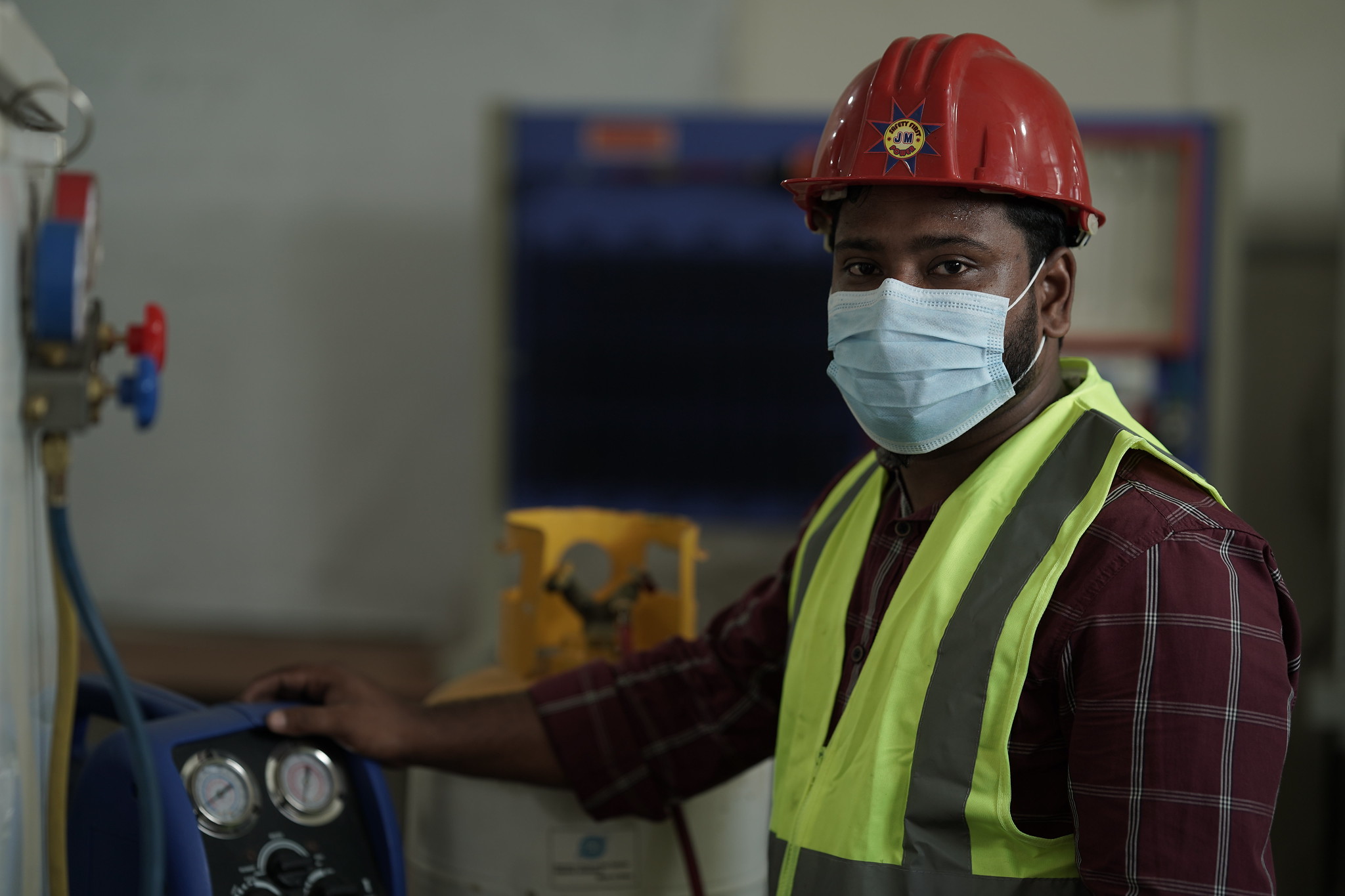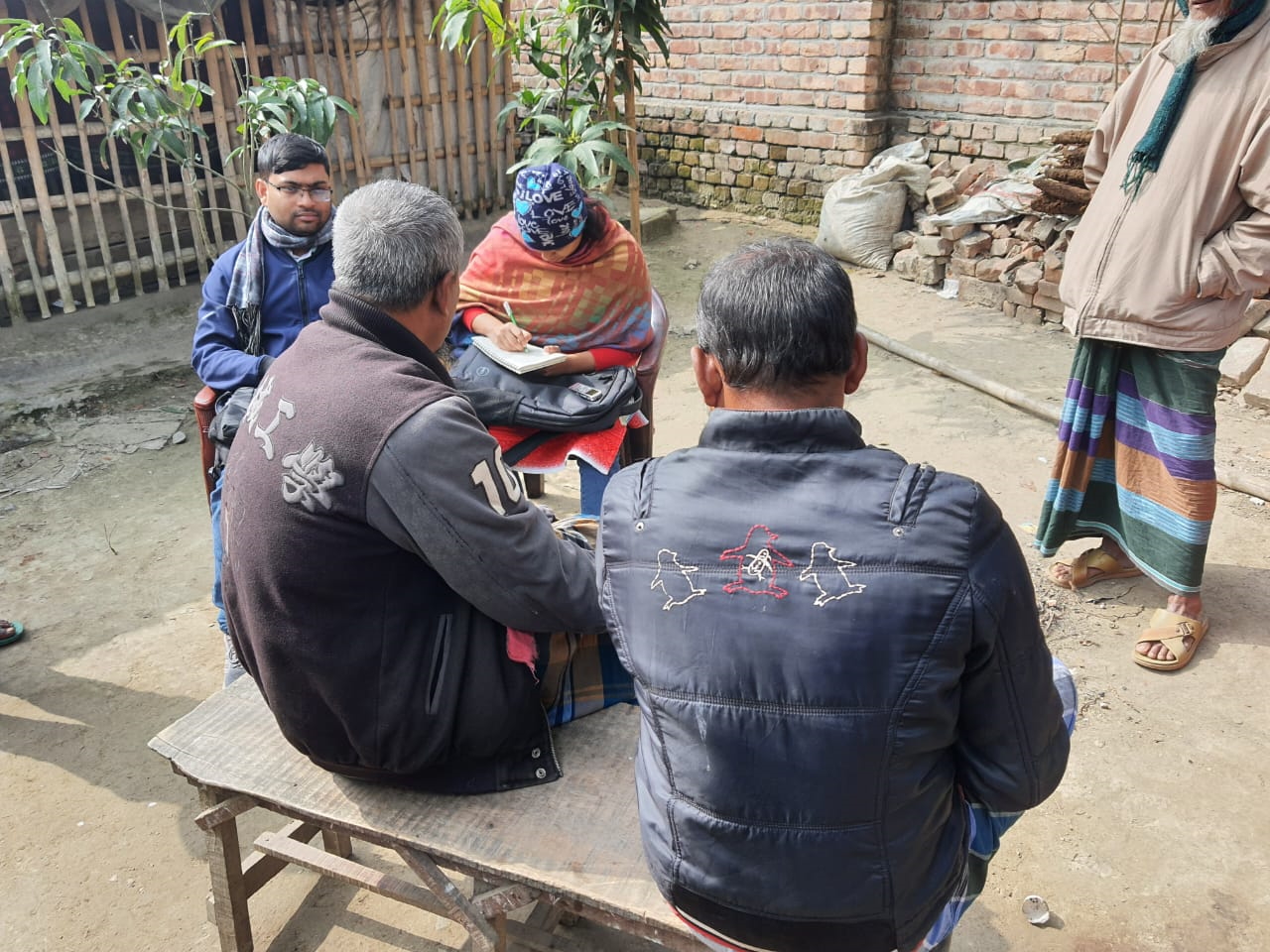From the beginning of the Covid-19 pandemic migrants were hard hit by job losses. Those working in precarious jobs or running small informal businesses in sectors forced to close due to lockdown and other restrictions lost all income. In South Asia, Covid-19 sparked the largest population movement since the partition in 1947. Transnational migrants added to this flow of workers.
Migration is an important pillar in the socio-economic development of Bangladesh. In 2019, over 700,000 Bangladeshis worked abroad and sent home US$18 billion (BMET 2020), contributing 12 per cent to the GDP. When the pandemic hit, the number of transnational migrants dropped by over two-thirds. Migrants returned to Bangladesh involuntarily due to loss of job and with that their visa sponsored by the employer, and migrants who were about to travel to take up a new contract or continue existing employment got stuck in Bangladesh. With no preparation for a work life in Bangladesh, migrants and their families were in a limbo. By the end of 2021, over 600,000 Bangladeshis were again working abroad, and transnational migration seemed to have been restored.
However, the labour market for low-skilled workers is transient and most migrants’ contracts are time-bound. The likelihood of large numbers of migrant workers returning to Bangladesh or needing assistance abroad is significant.
A new CLEAR scoping paper , summarised in this accompanying briefing, asked what lessons can be learned from the experiences of migrant workers and their families during the pandemic to identify what support is needed in the future.
Migrants’ involuntary returns to Bangladesh
In 2019 the three major labour markets for Bangladeshi migrant workers were Saudi Arabia, Oman and Qatar, all countries in which workers’ visa and legal right to stay are tied to their employer through a sponsorship system. For many being laid off at the beginning of the pandemic due to closure of their workplaces meant being repatriated to Bangladesh.
Mass movements of migrants always generate headlines in the news. With the fear of disease and contamination, much focus has been on the ostracising of returnees, and especially of female returnees, by their home communities. Rapid research has offered some insight into the stigmatisation experienced by returnees in their home communities, due to beliefs that they were bearers of disease even after observing the mandatory quarantine. Female returnees were further stigmatised by scurrilous perceptions of them being promiscuous while working abroad.
Small-scale surveys have also revealed that migrant families fared worse than non-migrant families and had to scale back on food consumption, reduce other expenditures and sell assets. Even after several months in Bangladesh, as many as 77 per cent of returnees struggled to reintegrate into the Bangladeshi labour market.
The scoping paper on migration has identified several research areas that will help generate better evidence for policies to support migrant workers in the future. Given the impermanence of migrant labour markets and the time-bound character of the work, a key area of research is to explore how sustainable reintegration of migrants can be ensured. Useful research questions include identifying ways to forestall complete income loss in situations of job loss abroad and enabling migrants to plan for future income within their communities. The dynamics within migrant families and communities with high rates of transnational migration and how coping mechanisms can be strengthened to avoid impoverishment and increased indebtedness were also identified as areas to explore.
Sustainability extends beyond household economies. The vulnerability to stigmatisation and ostracism upon return raises questions about returnees’ wish to remain in their home communities or even in Bangladesh as long as they are of an age to obtain contract work abroad. It also raises the question of how policy strategies could support the social position and psychological well-being of migrants upon return.
Migrants remaining abroad
Around one-third of the Bangladeshi migrant workers continued their work throughout the pandemic but often experienced difficulties in accessing health care, especially in the Gulf countries where employers regularly seize workers’ passports. Without the correct papers, workers’ access to Covid-19 vaccines was obstructed, making them vulnerable to infection and re-infection. Migrant domestic workers experienced a sharp increase in workload with increased cleaning to reduce the risk of Covid-19 infection and more people in the household throughout the day. Evidence of sexual harassment and abuse of female migrant workers has emerged in studies of return migrants in Bangladesh and the issue has been covered by several Bangladeshi news outlets.
These issues fall under a broader suite of labour rights violations that the CLEAR programme hopes to explore in more detail. As transnational migration is such an important part of socio-economic development in Bangladesh, the generation of evidence for the government and other stakeholders is crucial to protect migrants’ rights to decent employment. What role can the Government of Bangladesh play in ensuring migrant workers’ rights? How can migrants’ access to legal migration be supported, and what type of crisis preparedness among stakeholders would lessen the plight of transnational migrant workers and their families? What measures to reduce exploitation and abuse might support migrants’ ability to reintegrate sustainably in their home communities?

